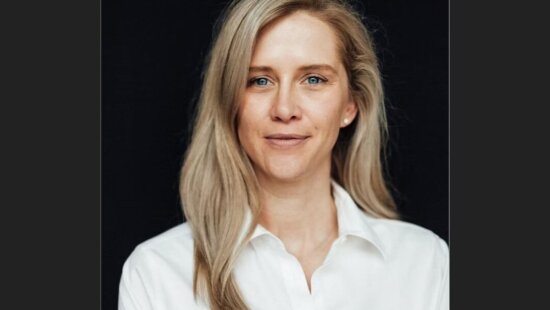Neighbors Magazines
Heber family runs foundation in honor of matriarch’s battle with Alzheimer’s
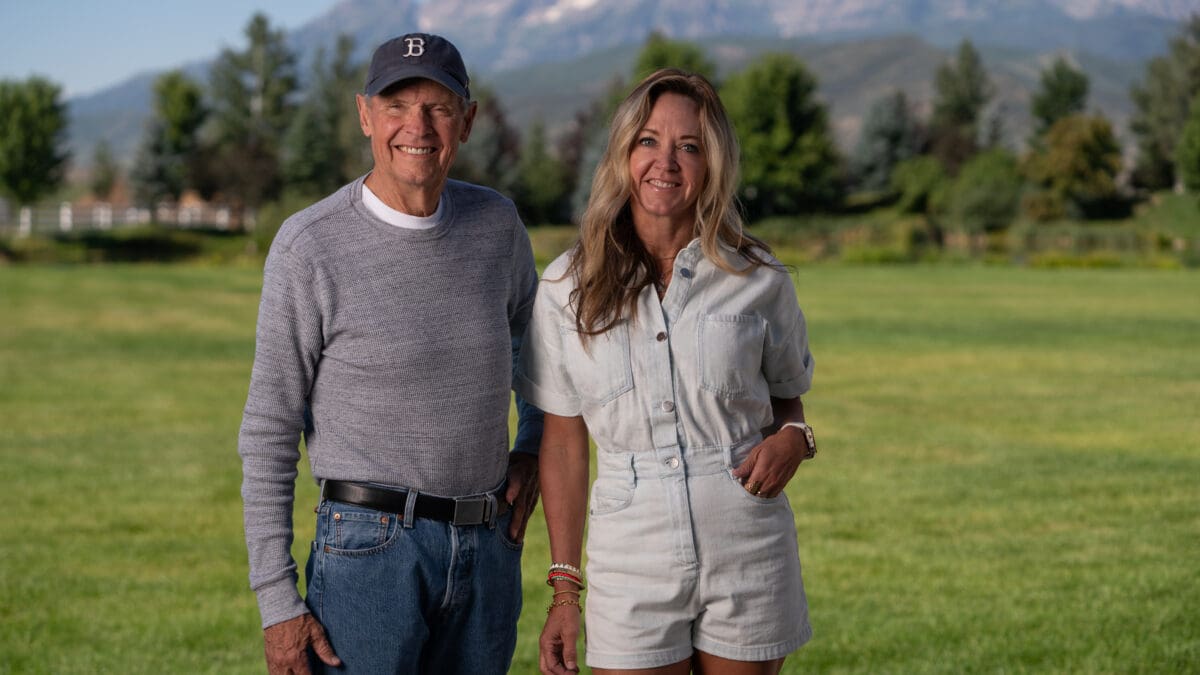
Father and daughter, Marsden and Katie Blanch. Photo: Park City Photographers // Deb DeKoff
How one family hardship turned to opportunity for others through the Lynden Legacy Foundation
By Ashley Brown, Neighbors of Heber Valley
When Lynette Blanch was diagnosed with Alzheimer’s 12 years ago, her family’s legacy was forever changed. Her husband, Dr. Marsden Blanch, became her primary caregiver, while their six children supported their father. Following her passing, the family vowed to honor her life with meaningful contributions to the medical and Heber communities through the Lynden Legacy Foundation and Summerhouse Farm.
Witnessing the rocky road of Alzheimer’s and supporting her dad in caring for her mother as her health deteriorated clarified Katie Blanch’s life purpose: to provide respite, resources, and aid for Alzheimer’s caregivers through the Lynden Legacy Foundation. “Over the 12 years that our mom had Alzheimer’s, we realized there are a lot of families with Alzheimer’s and dementia patients that cannot afford care. It’s not covered under Medicaid or Medicare, and insurance doesn’t cover dementia care. So, our goal is to provide respite for families,” Katie says, explaining her vision as the Lynden Legacy Foundation executive director.
The Blanch family structure melds medicine, generosity, entrepreneurship, and faith. The medical orientation of the Lynden Legacy Foundation ties into Dr. Blanch’s career as an otolaryngologist (ear, nose, and throat doctor and surgeon). The family is positioned to support others, in part due to Dr. Blanch’s electrosurgical invention, which launched him into medical entrepreneurship.
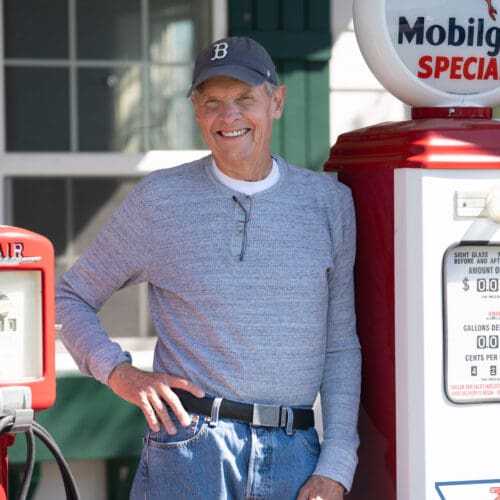
Marsden and Lynette met during his undergraduate studies at BYU and married before he began studying medicine at the University of Utah. “I had a great career. I loved it. It turned out to be the right thing for me,” Dr. Blanch says. His problem-solving skills and creative thinking ignited a quest to solve an operating room dilemma: accumulated char on radiofrequency powered surgical tools. “Radiofrequency energy has been used to cut and coagulate tissue for 100 years,” Dr. Blanch explains. “The problem is that when you apply radiofrequency energy to tissue, it builds up char on the end of the blade. The scrub nurse has to scrape it off with sandpaper or a scalpel. The more they scrape, the easier it builds up. It gets to be this horrible situation. The Teflon-coated blade doesn’t accumulate char. In a two-hour case, you’d save 15 or 20 minutes.”
The solution to char build-up on tools in the operating room came at an unlikely moment. “I’m cooking breakfast and realize these eggs are not sticking to the Teflon pan. Maybe the answer is a Teflon – Polytetrafluoroethylene coat on the electrosurgery blades. Nobody had tried that before. So, we got the patent on it.”
The Teflon-coated electrosurgical blade solved Dr. Blanch’s operating room problem, and it turns out other surgeons were facing the same conundrum. “When I first started passing blades out to test them, I had surgeons all over the country say, ‘I’m not going to do another case without your blades,'” Dr. Blanch explains. “It changed the face of surgery around the world.”
Dr. Blanch’s Teflon-coated electrosurgical tool ignited the launch of his medical entrepreneurial pursuits with the founding of Megadyne in the mid-’80s. “We started with just the blade. But by the time we sold [in 2017], we were the second largest electrical surgical company in the United States.”
The impact of Megadyne’s electrosurgical tools in the operating room earned Dr. Blanch the University of Utah Distinguished Alumni Award in 2020-2021. “It was a real honor. It puts you in a category of a handful of people that are far more deserving than I,” Dr. Blanch says bashfully.
Dr. Blanch juggled family, church, and full-time work as an otolaryngologist while running Megadyne. With six children, a steadfast commitment to his faith, and a booming career, it was a lot. “One year, Lynette gave me three juggling pens. I’ve still got him on the mantel. She said, ‘This is because you juggle profession, church, and family.'”
Amid booming medical and entrepreneurial pursuits, Dr. Blanch and Lynette were called to serve on a Latter-day Saints mission. “In 1995, the company was eight or nine years old and doing well. I was still practicing full-time. We were called on an LDS church assignment for three years,” Dr. Blanch explains. After returning from their mission, he thoroughly invested in Megadyne, which thrived under his direction.
By the time Dr. Blanch sold Megadyne to Johnson & Johnson in 2017, Lynette was in full throes of Alzheimer’s. Selling Megadyne created space and time for Dr. Blanch to devote himself entirely to his wife’s care. The process cultivated a deep empathy in the entire Blanch family.
“I’m thankful for the journey because it’s helped me to have more empathy. Without this journey, we’d be different,” Katie Blanch says, choking back tears. “Life is about having purpose, and helping other people.”
Acting as the director of Lynden Legacy Foundation is Katie’s outlet for helping others and living with purpose. The Foundation, which started as a charity, has a 20-year history of uplifting the Heber Valley community. The initial give-back was founding the Midway Turkey Trot. “What we did when we were run as a charity is donate 100% of the proceeds to a family that had needs in the area during Thanksgiving time,” Katie explains.
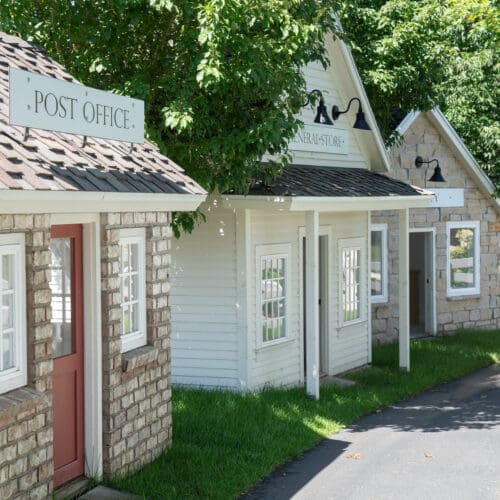
In addition to the Turkey Trot, the Lynden Legacy Foundation hosts the annual Summerhouse Farm Pumpkin Patch Festival to raise awareness and funds for Alzheimer’s. The 50-acre Summerhouse Farm is the Blanch family legacy property. It’s Dr. Marsden and Lynette’s vision for a place to celebrate and gather with their growing family, which now includes dozens of grandchildren and great-grandchildren.
Due to her illness, Dr. Blanch and Lynette didn’t have the opportunity to enjoy the property as much as they dreamed. However, her vision for the space is very much alive today. “She designed this house,” Dr. Blanch says of his late wife. Katie adds, “The house is as ornate as mom was.”
The home Lynette designed was the first structure on a property that now includes a one-acre pond, a splash pad, trampolines, pickleball courts, a double-story playhouse, Oma’s village – a conglomeration of ten tiny playhouses, barns, and a massive tractor activated swing (the newest addition to the property). Beyond the beautiful landscape and architectural design, Summerhouse is a functional farm with cattle, chickens, a Honey Crisp apple orchard, a pumpkin patch, and an alfalfa growing operation.
Set for the last weekend in September, the annual Summerhouse Farm Pumpkin Patch Festival generates awareness for Alzheimer’s and dementia while raising funds for the Lynden Legacy Foundation by opening Summerhouse for community celebration and enjoyment. “It’s a family-oriented event. It’s fun to have this whole generational experience,” Katie describes. Entry to the event includes options to pick a pumpkin and an apple, the airplane candy drop, dinner, ice cream, scones, and enjoyment of the property amenities.
The charity officially took on the title of a Foundation a couple of years before Lynette passed. In the past few years, Katie has doubled her efforts to support families and caregivers caring for Alzheimer’s and dementia patients. “We’re creating our own respite grants. The Lynden Legacy Foundation website is a great place for information,” Katie explains.
Beyond grants and supporting people through access to knowledge, the Lynden Legacy Foundation hosts a conference in the Blanch Family Education Center at Alta View Hospital. “One of the most gratifying things we did was our first caregivers conference. That’s where we made a difference,” Dr. Blanch explains. “We had a couple hundred people there for two days. We had classes on managing and navigating legal issues, daily caretaking activities, and little things like doing hair and putting on makeup.”
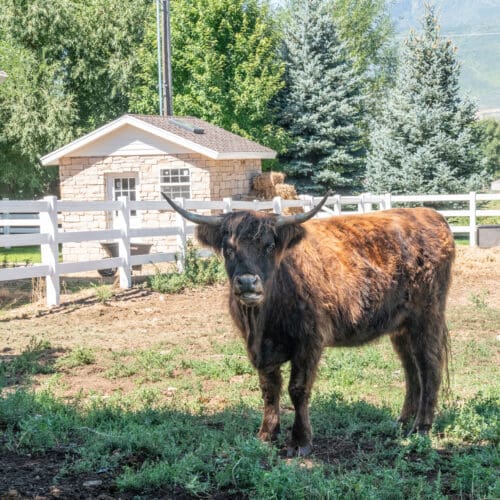
The Lynden Legacy Foundation and Summerhouse Farm are both gifts to the community. “We’ve been lucky enough to utilize Summerhouse for events,” Katie says. Dr. Blanch views the property as a give-back opportunity, and his vision includes opening the space for like-minded nonprofits and organizations. “This is not a commercial venture. I would like to do more charity events at Summerhouse Farm.”
From the Summerhouse Farm charity events to the Lynden Legacy Foundation initiative to support caregivers, the Blanch family embodies values that honor Lynette’s heritage. Losing Lynette clarified life’s purpose for her loved ones and created an opportunity to extend her influence for years to come.

















